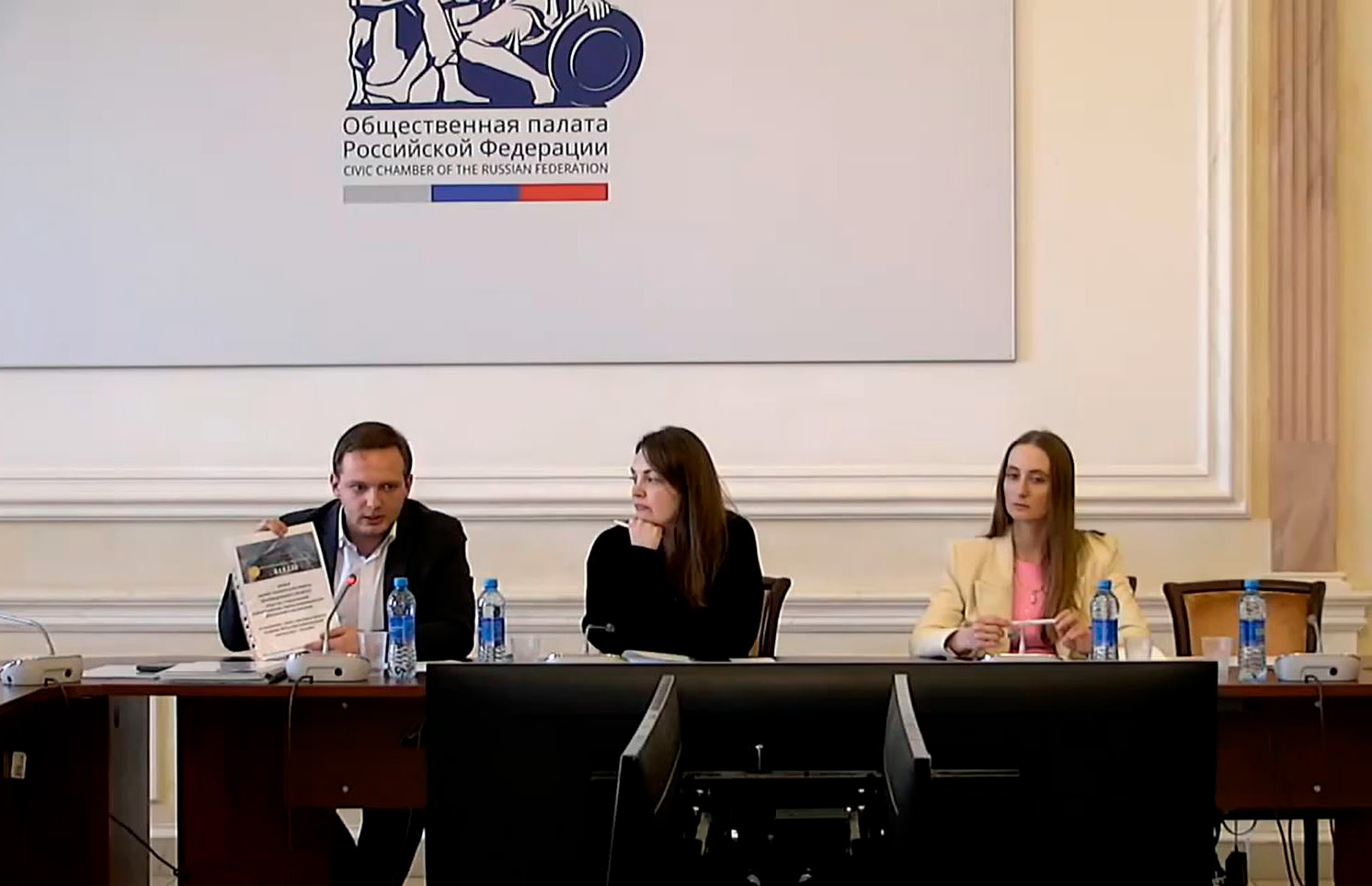
On April 28, the Civic Chamber of the Russian Federation hosted a round table, The System of Professional Development for Teachers: Modern Approaches and Tools. The meeting was initiated by the Civic Chamber Commission on the Development of Higher Education and Science and co-organized with the Federal Innovation Platform of the Ministry of Education and Science and the Agency for Support of State Initiatives. Specialists from the Coordination Center for TLD .RU/.РФ were also invited to participate in the event.
About 6,000 viewers from different regions of Russia watched the discussion online.
The discussion focused on modern models and trajectories of professional growth in education and innovative formats of advanced training such as digital courses, project workshops, interuniversity and interdisciplinary programs, internships in research centers and industrial partnerships, and participation in international educational networks. The participants outlined a possible strategy for interaction between schools, universities, the state and business in creating an environment for life-long professional development of teachers. It is imperative that professional development programs and retraining courses embrace a systematic approach to enhancing educators’ potential. It is also essential to strengthen their motivation for continuous self-learning at every level of education they work with, and to introduce effective tools to encourage best practices.
The event opened with the presentation of the nationwide certification study of expectations from professional development programs, co-sponsored by the Agency for Support of State Initiatives. The survey canvassed 28,000 teachers from every region and every level and cycle of education, from preschool to university.
“I would like to note at the outset that the professional development system for teachers is working: according to our research, 97% of respondents complete various professional development courses at least once a year,” Olga Korovina, Deputy Director of the Agency, commented. “The respondents mentioned the following subjects of interest to them that they would like to explore as part of professional development: digital competence (68%), inclusive education (49%) and new educational standards (67%). At the same time, their needs vary depending on the level of education they are employed in. Kindergarten teachers are interested in courses on interaction with parents and methods of working with children with disabilities; general school teachers would like to study the basics of critical thinking and emotional intelligence, as well as project work; teachers in the system of secondary vocational training are eager to explore educational psychology; and university professors choose to study digital tools and practice interactive teaching.”
Many of these needs are met by the Explore the Internet School of Mentors, a joint project of the Coordination Center for TLD .RU/.РФ and the Academy of Innovative Education and Development. This professional development program is designed for specialists working with children and youth, based on the Explore the Internet & Govern It game, the Coordination Center’s interactive project to improve digital literacy. The program is loosely divided into sessions that focus on more general subjects and those on more professional ones.
“Future digital mentors will attend lectures on the internet structure and governance, on universal acceptance, the Internet of Things and artificial intelligence, on children’s socialization in the digital environment, digital hygiene and mentoring strategies, and finally, on the current legal framework of education. At practical sessions, the instructors will provide methodological recommendations on how to talk to children and teenagers about information security, will talk about available digital tools recommended for use in the teaching and learning process and the use of artificial intelligence to create educational materials, and teach the participants how to use a mentor’s professional standard checklist,” said Viktoria Bunchuk, Head of Social Projects at the Coordination Center and supervisor of the Explore the Internet School of Mentors.
During their training, the new mentors will need to develop their own projects. For their final certification, they will need to create a technical map and a script for a lesson on a near-digital subject, using the content and simulators from the Explore the Internet & Govern It project, as well as a unique teaching tool known as the IT Lesson. After completing the program, participants will be awarded state-recognized advanced training certificates and receive access to the professional community of teachers already “socialized” in the digital reality.
Viktoria Bunchuk also mentioned two more educational projects implemented by the Coordination Center – Unlocking the Code, a program for boarding schools, orphanages, small-class and rural schools students and their mentors, implemented in partnership with the Academy of Innovative Education and Development, and the Summer School on Internet Governance for young professionals in various fields, co-organized with St. Petersburg State University.
Following the round table, an analytical memorandum will be prepared reflecting the main guidelines for improving the system of professional development in education, as well as methodological recommendations for schools, universities, preschool institutions and secondary vocational education. The document will be sent to the Ministry of Science and Higher Education of the Russian Federation, and distributed among educational institutions across the country.



